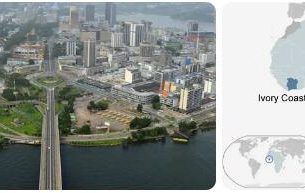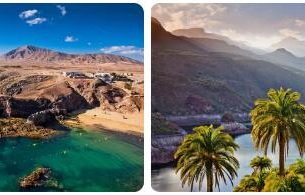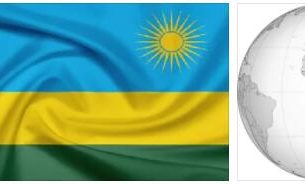Malawi – the warm heart of Africa
Although the Portuguese had parts of what is now Malawi under their flag as early as the 17th century, it was the Scotsman David Livingstone who discovered the heart of the country, Lake Malawi. This is all the more remarkable as this body of water – after all, the third largest inland lake in Africa – is actually not easy to miss. Today the exceptionally species-rich and colorful lake attracts numerous divers and snorkelers to the country despite the high risk of schistosomiasis.
Little is known about the history of Malawi before the European invasion. On the other hand, there are even more legends about the gray past. There are rumors of a powerful kingdom, the Kingdom of Maravi, which collapsed in the 19th century and was lost in bloody tribal wars. It is believed that this kingdom was a matriarchy. This part of the legend is certainly the most scientifically founded, after all, there is still a matrilineal inheritance law in Malawi today.
Given the current poverty of the country, one might wish for more stories from the past. It is certainly more pleasant to speak of a fallen kingdom than to deal with famine in the here and now. But this is also part of Malawi: 12 out of 100 children are born but never grow up.
One of the respected local customs in Malawi is first and foremost a great politeness towards strangers, which justifies the nickname Malawi as the warm heart of Africa. You should therefore be “prepared” to be spoken to on the street and involved in a conversation. You should get involved, because one of the truly unforgettable positive experiences during a stay in the country is to come into contact with the people.
| Name of the country | Republic of Malawi |
| Form of government | Presidential Republic |
| Geographical location | Southeast Africa |
| National anthem | “Mulungu dalitsa Malawi” |
| Population | about 19 million (Credit: Countryaah: Malawi Population) |
| Ethnicities | Bantu peoples (Chichewa, Nyanja, Lomwe, Yao, Sena etc.) |
| Religions | approx. 82% Christians, 11% Muslims, 7% followers of traditional religions |
| Languages | English (official language), Chichewa and other Bantu languages |
| Capital | Lilongwe |
| Surface | 118,480 km² |
| Highest mountain | Mulanje with a height of 3,001m |
| Longest river | Shire with a length of about 400 km |
| Largest lake | Lake Malawi with an area of 29,600 km² |
| International license plate | MW |
| currency | 1 kwacha = 100 tambala |
| Time difference to CET | + 1 h |
| International phone code | 00265 |
| Mains voltage, frequency | 220/240 volts and 50 Hertz(three-pin plugs are used.) |
| Internet TLD (Top Level Domain) | .mw |
Malawi: history
Before the year 1000
The first settlement of the shores of Lake Malawi probably took place more than 2 million years ago. From around 25,000 BC. The San lived as nomadic hunter-gatherer societies in what is now Malawi. Later, tribes of the cattle and sheep breeding Khoikhoi immigrated to the region.
Malawi from the year 1000 to the 18th century
According to Abbreviationfinder website, the immigration of Bantu peoples took place around 300 AD, these drove the Khoi and the San to the south. They were already using iron processing techniques and engaged in agriculture and fishing. The first settlements arose on the shores of Lake Malawi, from which the so-called Kingdom of Marawi of the Chewa developed by 1300 in the south of what is now Malawi. In this realm, of which there are very few oral traditions, it was probably more of a chief society, whose matriarchal structures are continued in the women’s inheritance law still common in Malawi today.
In the 19th century
In the early 19th century, the Yao advanced into the region from the southeast, and they were already trading in copper, ivory and slaves. With the subsequent arrival of the Arabs, the slave hunt on Lake Malawi expanded extremely, in which the Portuguese colonial power from Mozambique also participated.
In the 20s of the 19th century, the expansion of the Zulu Empire under King Shaka drove refugees from the Nguni into the country, who settled in the southern plateaus. At the end of the 19th century, they fought with the Yao, who at that time ruled the southern part of what is now Malawi and already owned firearms.
In 1859 the Briton David Livingstone was the first European to reach Lake Malawi.
In 1891 the British Protectorate Nyassaland was founded, which was converted into a colony in 1907. The African tribal chiefs retained their positions of power, but were under British suzerainty.
20th century until today
In 1915, under the Baptist clergyman John Chilembwe, a local rebellion broke out, which was bloodily suppressed by the British colonial regime. From 1953 to 1963, Nyassaland was part of the Central African Federation with what was then Rhodesia. In 1964 the country received its independence under the name Malawi.
From 1964 to 1994 it was led by Dr. Hastings Kamuzu Banda, who established a one-party state and made himself president for life in 1971. The increasing resistance against the dictatorship, not least on the part of the Catholic Church, resulted in a peaceful referendum in 1993, which in turn led to the introduction of free elections. In the elections that took place in May 1994, Dr. Bakili Muluzi. He was re-elected President in 1999. After Muluzi failed to extend his presidency by means of a constitutional amendment, the 2004 controversial election won the Bingu wa Mutharika (also UDF), who he wanted to succeed him.




